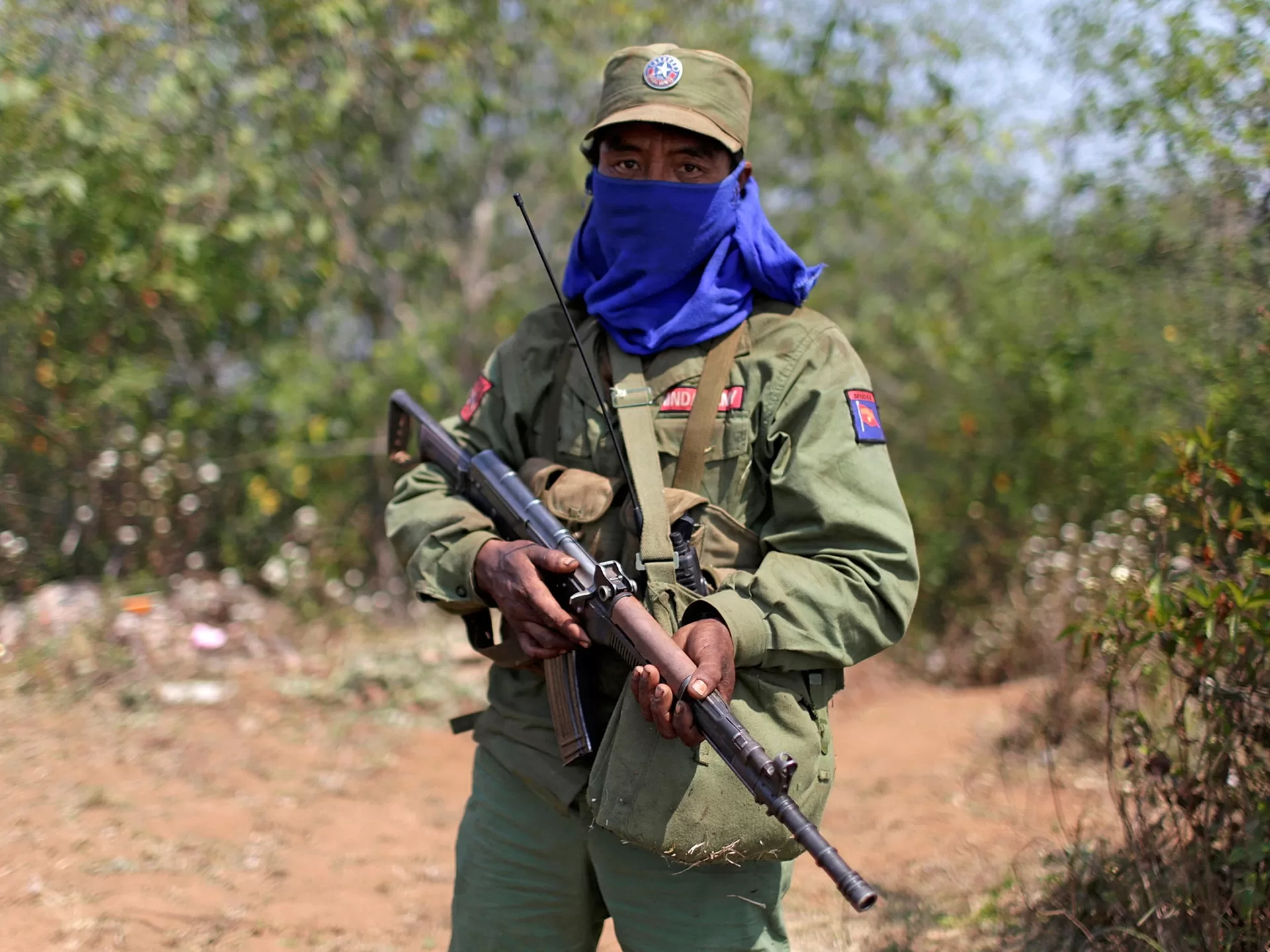Anti-coup fighters claimed to have taken control of key military base in northeastern Lashio over the weekend.
Myanmar’s army chief and coup leader Senior General Min Aung Hlaing has acknowledged his troops are under pressure after anti-coup fighters claimed to have taken control of a key military base in the northeastern town of Lashio.
The Myanmar National Democratic Alliance Army (MNDAA), part of a powerful alliance of ethnic armed groups fighting to remove the military from power, said it had overrun the headquarters of the army’s Northeastern Command at the weekend.
Min Aung Hlaing did not directly address the situation in Lashio but indicated that in northern Shan State, “security forces withdrew their positions” for security reasons and because they were concerned about the safety of people living there.
The army chief, whose comments were published in full in Tuesday’s official Global New Light of Myanmar, accused anti-coup forces of abuses, attacking civilians and military hospitals and working with “stooges at home and abroad” to demoralise the population. Their weaponry, including drones, was also becoming more sophisticated, he said.
The military seized power in February 2021 from the elected government of Aung San Suu Kyi and her National League for Democracy party. The coup led to mass protests that evolved into an armed rebellion when the military responded with force.
Nearly 5,500 civilians have been killed in the fighting while some 20,715 are in jail for criticising the military, according to the Assistance Association for Political Prisoners, which has been tracking the situation. Rights groups have also said the military should be investigated for potential war crimes over attacks on civilians.
Lashio lies about 110km (70 miles) south of the Chinese border and has been an MNDAA target since it launched the second phase of Operation 1027 in early July. It took the border city of Laukkai, notorious as a hub for criminality and the capital of the Mandarin-speaking Kokang region, in January.
The armed alliance, which also includes the Ta’ang National Liberation Army (TNLA) and Mandalay People’s Defence Force (PDF), had already claimed recent advances, taking areas including Mogok, known for its lucrative ruby mines, and the northern Shan State towns of Kyaukme and Nawnghkio.
On August 2, the MNDAA said it had completely captured the Northeast Command headquarters and defeated the remaining army units in the city.
“The regime’s loss of the Northeast Command is the most humiliating defeat of the war,” said Morgan Michaels, a Singapore-based analyst with the International Institute of Strategic Studies who runs its Myanmar Conflict Map project. “Without Lashio, it will be extremely difficult for the regime to hold onto its final outposts in the theatre.”
The MNDAA is part of the Three Brotherhood Alliance which also includes the TNLA and the Arakan Army, which is fighting the military in western Rakhine state.
The MNDAA initially claimed the capture of the Northeast Command and Lashio on July 25, but the army continued to fight.
Early on Monday, Major General Zaw Min Tun, the spokesperson for Myanmar’s ruling military council, said in an audio statement on state-run MRTV television that it had lost contact with commanders of the Northeast Command headquarters. He did not address MNDAA’s claim of capturing the base.
Myanmar’s military has 14 regional commands across the country and soldiers in at least 10 of them are currently engaged in fighting established ethnic minority armed groups or the newer PDFs.
The fall of the Lashio HQ marks the first loss of a regional command centre.
